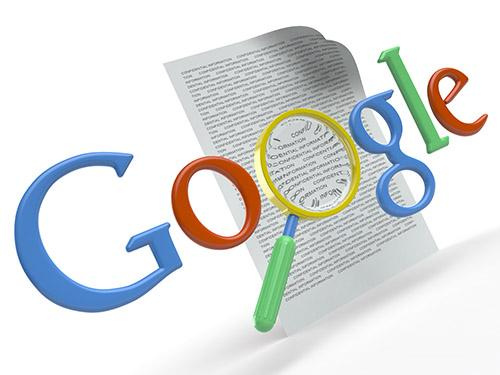Google Close To EU Antitrust Agreement

Google is reportedly close to reaching an agreement with the European Union to resolve its antitrust issues
Google could be close to resolving its antitrust differences with the European Union, according to one media report.
Google “has agreed [to] the outlines of a settlement” with the European Union to finally end an ongoing EU investigation into alleged anticompetitive behaviours by the search giant in the European marketplace, according to a report by The Financial Times (FT).
Under the settlement, Google would not be hit with formal antitrust charges by the EU, the report stated.
Deal Details
“In a big test for how Google handles the mounting regulatory scrutiny it is facing worldwide, the company offered to make significant changes to its business” to end the investigation and avoid large fines that could have amounted to almost $4 billion (£2.6bn), the FT story reported.
The exact terms of a deal have not yet been announced publicly and the arrangement has not yet been finalised, but the main sticking points that have been raised in recent months – how to include mobile search services and Android – are being addressed, the report said.
 Negotiations for a settlement deal have been in the works for more than a month. Last week it was reported that Google’s Android technologies would have to be included as part of any agreement for any deal to pass muster with the EU.
Negotiations for a settlement deal have been in the works for more than a month. Last week it was reported that Google’s Android technologies would have to be included as part of any agreement for any deal to pass muster with the EU.
“The breakthrough [in the settlement negotiations] came after Google said it would in principle extend the remedies it had offered to make for PC-based search to cover mobile search services, too,” the FT reported.
In an email reply seeking comment on the potential settlement a Google spokesperson said: “We continue to work co-operatively with the European Commission.”
Charles King, an IT analyst with Pund-IT, said a settlement with the EU, rather than a long-term legal battle, is a smart move for Google.
“From a business-focus perspective, it’s much better for companies to reach a compromise than it is to drag this kind of thing out for years and years,” King said. “It’s a good example of what we saw happen with Microsoft back in the 1990s,” when the company endured having an antitrust watchdog on its campus for years. “That could have been something that Google considered” in deciding to reach a deal before things went that far.
In addition, said King, businesses that are pursued in such cases often also become legal targets by other companies that want a piece of the action.
Google Concessions
“Over the past couple of years we’ve seen that certain companies in the technology industry have come to rely more on litigation than technological innovation,” he said. “And being the subject of an antitrust investigation from an organisation like the EU almost automatically makes a vendor a target for other kinds of litigation.”
Earlier in July, Google again updated a list of proposed actions the company would take in response to the EU’s antitrust concerns. That list came two weeks after Google submitted an earlier list to the agency that failed to garner the EU’s full satisfaction.
Since then, Google has been continuing to try to come up with a concessions package that would be acceptable to both the company and the European Commission, the antitrust agency of the EU. Such a deal would allow Google to potentially avert charges of anti-competitive behaviour. Neither side have comment publicly on the process.
Google executives originally sent the list of initial concessions to address potential antitrust concerns from the EC several weeks ago. At the same time, Google Chairman Eric Schmidt sent a letter to the EU’s Joaquin Almunia, outlining steps the massive Web company would be willing to take to resolve the EU’s concerns, including claims that it favours its own search results over others.
The EU investigation centres on what they regard as Google’s dominant position in search.
Almunia in May had given Google officials until early July to address that and other concerns, including the use of material from other search engines in its results and its dominance in Web advertising, all of which investigators have said put competitors at an unfair advantage.
Unfair Advantage?
Since that time, Almunia again spoke to Google’s Schmidt and asked for more clarification of Google’s proposals from early July.
Google officials are under investigation in Europe, the United States and elsewhere regarding its search engine, which holds more than 60 percent of the search market, with Microsoft’s Bing being a distant second. Competitors have claimed that Google configures its search algorithms to favour its own products and results over those of others, giving it an unfair advantage in search and Web advertising.
Do you know all of Google’s secrets? Find out with our quiz!
Originally published on eWeek.